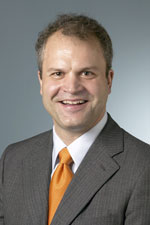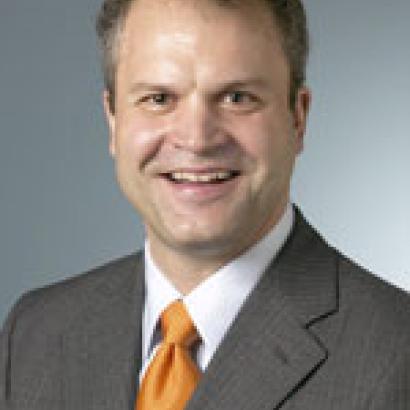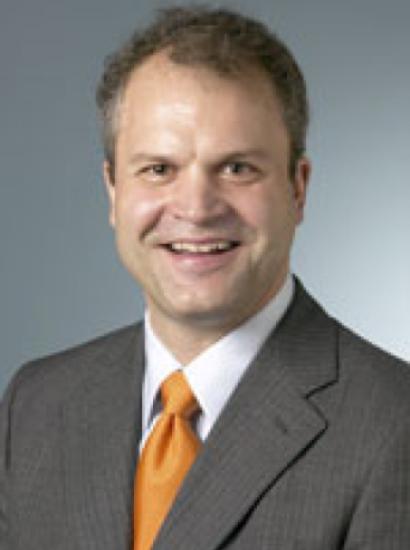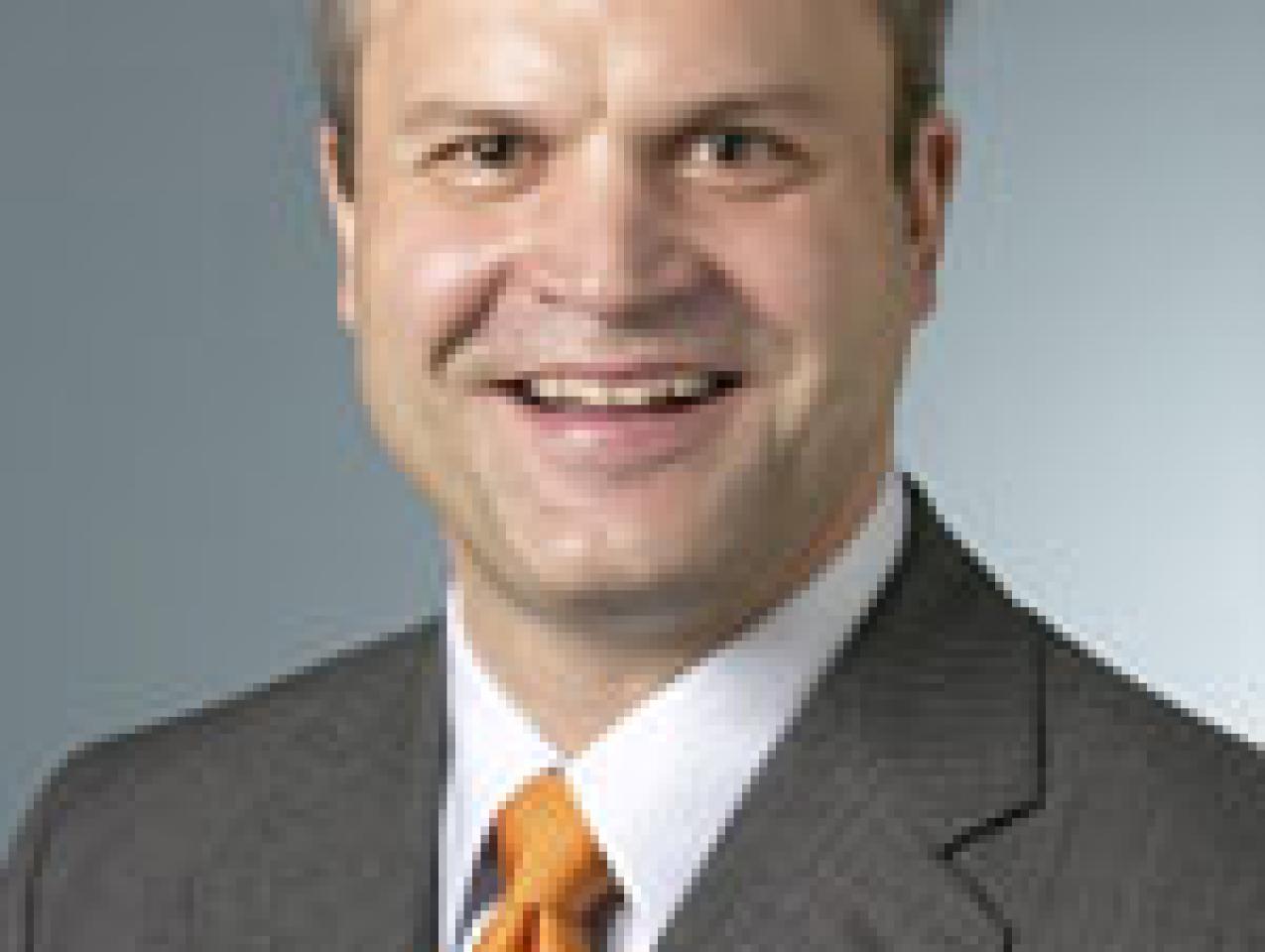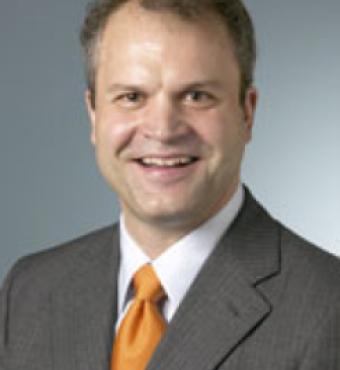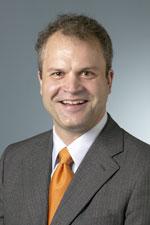- History
- Contemporary
- US
- Politics, Institutions, and Public Opinion
- Campaigns & Elections
- The Presidency
- Law & Policy
- Civil Rights & Race
Recorded on December 2, 2016
Professor Russell Muirhead argues that to do anything in politics you need a party but just because a party currently rules does not mean it will be successful and continue to rule. He posits that parties need to remember and nurture achievements that they were responsible for creating in the past, so the party can protect and extend those achievements into the future and thus continue to rule. The ultimate goal in elections is to create a constitutional majority and keep that majority for more than one election cycle. Unfortunately, each party has pursued an agenda that is more extreme than what the people want, so the people vote in the opposite party.
The Constitution makes no provision for political parties, but Muirhead argues that parties connect average citizens with their elected officials. People feel like someone cares and is fighting for them in their state government and in DC. He further examines the development of political parties from the founding of this country through the era of bipartisanship in the twentieth century. He believes that polarization of American politics today is not necessarily negative if parties work to advance the good of society.
Muirhead defends the Electoral College, stating that it answers the fundamental question of who should rule, which is the constitutional majority. The Electoral College is a constitutional majority because it represents an enduring and geographically dispersed population that is larger in space and more enduring in time and thus a more thoughtful, right, and just majority. He argues that the game being played today is Trump versus Madison and that we don’t know which will win. Madison represents the best in us; Trump represents authenticity. The voters hope that President Trump will translate their hopes and grievances into good government.
Peter Robinson and Russell Muirhead end the interview by briefly discussing the global project that depends on the success of the United States, with Muirhead arguing that there is no global project without the United States. The fight for justice requires people/citizens who are tough, resilient, and ready to fight the world’s fight for good; that type of character is what we need to model at colleges and universities today.
Full Transcript Below:
Peter Robinson: The election of 1800 was ugly too, but the candidates then were John Adams and Thomas Jefferson. The state of American democracy today, with us, someone in a position to say so. Political philosopher, Russell Muirhead, on Uncommon Knowledge now.
(Intro Music)
Welcome to Uncommon Knowledge, I'm Peter Robinson. Russell Muirhead holds his undergraduate, masters, and doctoral degrees from Harvard University. As a Rhodes scholar, he studied at Balliol College Oxford. Doctor Muirhead has taught at Harvard, at the University of Texas in Austin, has been a visiting fellow to Hoover Institution here at Stanford, and since 2009 has been a member of the Department of Government at Dartmouth College. Professor Muirhead's latest book, The Promise of Party in a Polarized Age. Russ, The Promise of Party quote, that by the way, this quotation is just astonishing after the campaign we've just been through. "What politics needs is not less partisanship, but better partisanship." Explain that.
Russell Muirhead: Better partisanship is partisanship that connects the desire to win office with principles and ideas, especially principles that make that desire something noble. Low partisanship is just the desire to win, the desire to rule, the desire to have power. High partisanship is much more motivated by the desire to do something good, where good is defined by some kind of principle or set of principles. Better partisanship is principled partisanship.
The Constitution makes no provision for political parties, and yet by the election of 1800, we had political parties. We had ... They were more loosely formed than they are now, but they existed. We had two political parties, and we've had two political parties ever since. They shifted around, we'll get to that, but how did we get stuck with parties in the first place? How'd they form up so quickly when they're not mentioned in the founding document?
Yeah, I think that parties answer a profound defect in the Constitution, a kind of vulnerability in the state that the Constitution created. The people who opposed the Constitution in the ratification period, known as the anti-federalists, said that "The problem with this new state is that it would be too disconnected from ordinary people. It'd be run by an elite, by people who were smarter, more capable, more wealthy, more established than ordinary people. That elite wouldn't be able to appeal to the sentiments and the attachments, the loyalties, the cares of ordinary people." As a result, there'd be kind of a trust deficit. Ordinary people wouldn't trust this government. The problem with that is that a government that's not trusted can only impose its laws through coercion, and threat, and force. The anti-federalists said, "This thing is not going to work. It won't have the confidence of the people." I think they were right. It didn't, and it often doesn't still have the confidence of the people. Parties are what marry the sentiments, the passions, the cares of ordinary people, people on the street with that distant government in Washington DC.
The government is a million miles away in the agrarian period ... Well, today for that matter, no matter where you ... We live here in California, if you're a democratic you feel you have your fellow Democrats in Washington, there's a fellow feeling that it creates. You have your guys fighting your corner in Washington, even though you may never visit it and it's on the other side of the continent. That's the notion?
I think that's the idea. That arose in the 1790's right as soon as the government got going, but it really was developed by Martin Van Buren. The 1820's to 1830's.
1820's, right.
By the way, I think this is a defect not just in the United State's Constitution. What the anti-federalists diagnosed was a defect that afflicts the modern state. All modern states sort of rule over tens of millions, if not hundreds of millions of people. They're run by an elite of sorts, and they have difficulty eliciting the trust and the confidence of ordinary people. Something we see all over the world in the era of modern democracy. Can I just also mention-
Yes, you may. I'm going to try to bring you back to the United States.
Here's something in the United States-
If we cover centuries, we're doing pretty well. If we cover centuries and the globe, we're asking a little too much, but go ahead.
I mean, at the time the anti-federalists said this about the Constitution-
Yes.
The Federalists, Hamilton, in particular, had an answer. The Federalists said, "You know what will make this new government work, good administration." He says this in Federalist 27 most directly, "Yeah, you're right. This government's not going to be run by ordinary people; it's not going to be run by people like you. It's not going to be like those state governments. That's why you're going to appreciate it more. This government is going to keep the peace and pass policies that conduce to national prosperity more effectively than your state governments do. When you're enjoying peace and prosperity, you still won't like those elites, you won't feel like them, you won't feel a bond with them, but you'll appreciate their good administration." That's what Hamilton thought would make the federal government work. The first administration-
The first technocrat in a sense.
In a sense, yes. I don't think that argument is entirely wrong, but it didn't prove to be as right as Hamilton hoped. That's why the Constitution needs parties. It needs parties to address the stuff, that defect that made it work.
From the 18th Century to the middle of the 20th, we'll get to the 21st in a moment, middle of the 20th, the so-called, Golden Age of Bipartisanship, that you write about in your book, which lasted from roughly the new deal. Franklin Roosevelt is elected in 1932 to the 1964 Civil Rights Act signed into law by Lyndon Johnson, passed with republican support in the senate, particularly signed into law by Lyndon Johnson. In those days, there's a certain nostalgia for it, particularly among political scientists-
Journalists.
Journalists.
A lot of nostalgia.
A lot of nostalgia, because in those days the democrats and the republicans could reach across the aisle and do deals together. As witnessed, I just said, the Civil Rights Act, the Republican votes in the Senate were crucial to enacted that legislation, which was signed by a Democrat, Lyndon Johnson. You argue any nostalgia for that period is badly misplaced. Why?
Well, let's be fair.
Do you?
That regime ... You're right; I think we can exaggerate the beauty of that era. That era is responsible for some great achievements. That era pursued a policy of containment successfully across republican and democratic administrations for what? Five decades.
Right.
In fact, what did end up, because a victorious over communism, it built an alliance of democracies that would stand together, built and sustained NATO decade after decade, it created a world of free trade, and prosperity, and in some sense-
You're extending-
It wasn't totally defective.
Right, right, right. You're also extending in the book, I think you write the 1964 Civil Rights Act is a decisive moment, but in fact, under Ronald Reagan who ends the Cold War, there was still a substantial number of conservative southern Democrats in the House and bipartisanship is still continuing. Okay, go ahead.
Yeah. The chief problem with it, the price that we paid with it, was that we had to keep race off ... Race and civil rights off the national political agenda. That was the price we paid for mid-20th Century bipartisanship, because-
Because those southern Democrats were segregationists, the great bulls of the Senate.
Yeah, the Democratic party was this alliance of northern labor, and southern Democrats were Democrats because Lincoln fought the war. The founder of the Republican party fought the Civil War.
A century later the south was still Democratic in reaction to the Republican who defeated them, and the Republican who enforced reconstruction on them, correct?
That's what I would say, yeah.
Okay.
They were Democrats by habit, and the southern Democratic party was a segregationist party, as the Democratic party had been prior to the Civil War.
All right, so-
Lyndon Johnson destroyed this great coalition, the new deal coalition of southern Democrats and northern liberal Democrats, northern laborers. He destroyed it by passing the Civil Rights Act of 1964, and then the Voting Rights Act of 1965. That [inaudible 00:09:09] ... He knew he was doing it. He used all the capital accrued, accumulated by the ... Over three years of this coalition, and he spent it all at once on Civil Rights.
All right. What's happened since is that we get a great sorting out. Conservatives are now Republicans, and there are very few liberal Republicans left. With the result, for example, that New England and the upper northeast, New York, Pennsylvania and so forth, the Rockefeller Republicans, the Scranton Republicans of Pennsylvania, they just don't exist anymore. The Republican party is a conservative party. The Democratic party is now a liberal party. Okay. Now according to the political theory that I recall from my dim undergraduate days, I dimly recall from my bright undergraduate days, that should be a good thing, because one of the purposes of the political parties is to signal commonality to vote if you're a conservative, "Oh, a Republican is conservative," it tidies things up. If you're a liberal, you say, "Oh, I'm a Democrat." It just makes it simpler and cleaner. Yet, you're a little unnerved or no, that's a good thing?
I think-
Because that it also leads to this polarization, hyper-partisanship, can't get deals cut across the aisle.
Look, what you say you dimly remember from political theory is the argument that I make. There's more to be said for this polarization than is generally said in its favor. I appreciate it; I think it's clarifying it. It ought to clarify important and even inescapable public questions. In the moment when I came of age politically, it was still the case that there were both liberals and democrats in the Democratic party, liberals, and conservatives in the Democratic party, and there were liberals and conservatives in the Republican party. Each party kind of covered almost every inch of ideological space. Most important legislation was passed by whopping bipartisan majority, so you could elect a Republican, you could elect a Democrat, it wouldn't make that much difference to the way the regime actually functioned, the kind of laws you might get. Which meant, it was impossible to change anything.
Right.
It was very difficult to contest anything and when I was an undergraduate the main argument with the two-party system in America is that it gave voters no choice. Everyone said, "We need a third party. We need more parties. We need a multi-party system so that voters can make a real choice and are offered real alternatives." Now we have that, and it's not entirely bad. I think the parties are in fact, clarifying some important choices for-
One last question about the current state of the parties. The Promise of Party's, once again, quote, "Party loyalty at its best, party loyalty at its best expresses itself as a kind of remembrance." What do you mean by that?
Partisans, what it means to be a partisan is that you remember the achievements that your party's responsible for in the past, and you try to protect and extend those achievements. To do anything in politics, in democratic politics, requires a party. Barack Obama has learned that perhaps for the first time, in just the last month. The great achievement of his presidency is the Affordable Care Act. That great achievement might be dismantled in the next six months because he did not build a party that could take over and protect that achievement after his second term ended. His failure as a partisan is going to be his failure as a president.
All right. From parties to the Constitution. Hendrik Hertzberg writing in The New Yorker quote, "Is the American Constitution obsolete?" Terry Moe, a colleague of mine at the Hoover Institution here at Stanford has just published a book entitled, Relic: How Our Constitution Undermines Effective Government. Question number one, a modern industrial nation of 330 million people governed according to a document more than two centuries old that was drafted for a premodern agrarian nation of a few million clinging to the eastern seaboard. The idea that we should be governed by that document is absurd on the face of it, is it not?
Thomas Jefferson wanted every constitution to come with an expiration date. I think he calculated 19.7 years so that each generation could write its own new fundamental law. In some theoretical sense, that makes ... That's very appealing. Practically I think it would be a wholesale catastrophe to have a new constitutional convention. I mean, I can just barely contemplate the way that special interests would come to dominate that convention and try to tweak every little phrase of the Constitution to their own benefit. Even if it's true that in theory, we could ... Well, let's just say the wisest among us and the most public-spirited among us could, in fact, design a better Constitution for 2016 than the one we've inherited. I would still counsel us to stick with the one we've inherited.
All right. Do you feel any impulse to rise to the defense of the electoral college? Donald Trump lost the popular vote by what now looks like about two million, and yet his victory in the electoral college was 306 votes to Hillary Clinton's 232. Just how much ... How stout of a defense of the Constitution are you willing to mount here?
The electoral college is part of the most fundamental idea in the Constitution. The most fundamental idea is this, it answers the most basic question of politics. Who should rule? Who should rule? The Constitution's answer is this, the Constitutional majority should rule. All right, well what's that? What's the Constitutional majority? The Constitution says it's not just a bare majority of the citizens, as Gallup might register in a poll tomorrow or next week, it's a more enduring, temporally enduring and geographically dispersed majority than what Gallup picks up on. It's a majority that can elect ... That's widely enough dispersed so that it can elect a majority of seats to Congress. A body, the whole of which is reelected every two years.
The House is reelected every two years.
Yeah, the House.
Right.
It's a majority that's large enough to elect a majority of senators. That's the geographic dispersion. To do that, you have to hold your majority together for four years, because only a third of the Senate is up for reelection any one moment. It's a majority that can create a majority in the electoral college, so it's a much-
Capturing the presidency.
Capturing the presidency, yeah. The Constitutional majority is larger in space and more enduring in time than any ordinary majority would be. The idea there, the idea of the founders was that a larger more enduring majority would more likely be thoughtful, reflective, right, design policies that are actually effective, and just, design policies that are really fair, even to minorities. That's the idea. Now, you could get an unjust and a stupid Constitutional majority, or an erroneous Constitutional majority, it's happened, but ... There are no guarantees in the democracy. Ultimately, without a virtuous citizenry, you're not going to get good government. It makes it harder for the people to do things that they subsequently regret, and so I would-
This is what Barack Obama failed to grasp, that he needed a temporally durable and geographically dispersed majority. You don't engage in policy departures as radical and sweeping as the Affordable Care Act without a single Republican vote.
The great dilemma of American politics since Ronald Reagan, is that neither party has been able to grasp this.
Right.
Neither party has been able to form a durable governing majority. We blame all sorts of things for that, and the causes are manifold, but underlying it all I would say neither party has really tried to. They've satisfied themselves with one moment of victory, thinking that's going to secure them rule for as far as they can see. Right now, the Republicans rule the House, the Senate, and the presidency, and they're feeling very happy about it.
Don't gloat, you were just getting started. Is that right?
Exactly, exactly. Don't gloat; you're just getting started. Make this last for 30 years, and you'll rule. The Democrats had unified party control, both houses of Congress, and the presidency in 2008, they kept it for two years. Yes, they lost it because of the Affordable Care Act, I would say. The Republicans had it in the Bush administration for a moment, and they lost it. This is the great goal that the Constitution offers. It says, "If you can form a Constitutional majority, you can rule."
You must carry the country with you.
Yeah, and to do that-
Not on their own.
You need a very diverse coalition. You need to govern the way that holds that coalition together over time. I would say, each party has pursued an agenda that's actually more extreme than what the people have wanted. The people who voted in Republicans with George W. Bush and then I think, arguable the Bush administration undertook projects that exceeded its mandate, and they lost their majority before his second term was out. The Democrats did it all over again in 2008. The real ... What I would counsel the House Republicans, the Senate Republicans, the Trump administration, the leaders of the party is that you should keep your eye on the big prize, the Constitutional prize, and try to form a durable, diverse, dispersed, lasting majority that can rule. If you do that, you won't be complaining about the electoral college.
Right. Democracy itself. Caleb Crain writing in The New Yorker this past Autumn quote, "Roughly a third of American voters think that the Marxist slogan, 'From each according to his ability, to each according to his need' appears in the Constitution. About as many are incapable of naming even one of the three branches of the United States government. Fewer than a quarter know who their senators are." Voters don't know what they're voting on. That's quotation number one. Here's quotation number two, second longish quotation, but I'm setting something up to watch you play with it. G.K. Chesterton writing in his book, Orthodoxy, quote, "Voting is not something analogous to playing the church organ or painting. For these are things we do not wish a man to do unless he does them well. Voting is analogous to writing one's own love-letters or blowing one's own nose. These things we want a man to do for himself, even if he does them badly." It doesn't matter how well voters vote, we accord them the right to do so because there is something inherent in the dignity of each person that requires us to do so.
Yeah, I don't know that I would concede so quickly that voters are uninformed.
You wouldn't?
I don't know that I would. No, I think it's very easy to design little questions of propositional ... Test propositional knowledge and show the voters to be ignorant. Some of the sort of civics tests that I've looked will ask voters ... Ask just people, "What are the five liberties guaranteed in the first amendment to the Constitution?" When people can't name all five, everybody goes, "Oh, the people ... They don't know the Constitution."
If you ask, are your taxes too high?
Yeah, well-
How's the economy doing in your family?
Was the Iraq War successful?
Right. Okay, I see.
Is the Affordable Care Act in the public interest? Is it well designed? They have a feel for these things. Is the economy good?
You're willing to-
Is the country headed in the right direction, or the right track, wrong track? No, I think people are probably pretty well qualified to assess the general state of the country.
You're-
If you briefed them for 20 minutes before you asked those questions, they'd remember their member of Congress, they'd remember how many people are on the Supreme Court, and all that stuff.
You're willing to make a practical argument, you embrace democracy because it actually works pretty well.
Yeah, and-
You don't need to resort to the Chesterton position that the inherent nobility of the individual forces us to risk it.
I think the knowledge that ordinary citizens pick up in their daily experience gives them some handle on the real state of the country that they can translate into a vote with some intelligence. I'm not sure that ... There might be, you can find some election where maybe the people are deceived by some very artful manipulation of the facts, but in general, that beautiful quote that sort of established the ignorance of the people is not something I'd concede. It reminds me of a teacher who gives an exam that's full of tricky questions and shows all of his or her students to be bad students. Students who have been doing their work and have been paying attention will find that kind of exam very, very unfair. This is the way we sort of I think test citizen knowledge.
Got it.
Yeah, I think citizens understand whether things are going well or not going well in their country, in their city, and in the world. I think they can translate that with some rationality into a vote.
Another fundamental question about American democracy at the present moment is the question of virtue. George Washington, farewell address, "Of all the dispositions and habits which lead to political prosperity, religion, and morality are indispensable supports." Fewer and fewer Americans attend religious services, divorce rate close to 50%, out of wedlock rate 40%, coarseness and vulgarity everywhere in the popular culture, pornography in everybody's home by way of the internet. George Washington copied out the rules of stability and decent behavior as a young man to get it firmly into his mind. He copied this out, and it would be difficult to suppose that Donald Trump has done any such similar exercise. Is the coarseness of American culture, the lack of virtue, as George Washington would have understood it, religion and morality, quite old fashioned sounding terms. That shows how culturally out of sync we are with that founder and his view. Religion and morality. Is American democracy at threat because the people aren't good enough?
Yeah, the game that I think is being played right now can be summarized as Trump v. Madison, and we don't know which one's going to win. Along with this idea that the Constitutional majority rules, part of that idea is that the virtuous, the people need to be virtuous to be deserving of rule. The underlying idea is that the Constitution is meant to bring out the best from the people, the most deliberate, the most reflective, the most judicious understanding of the interests of the country by inserting some space between our passions, our reactions, and even our interests and loyalties, and the authoritative force of law. The majority is all riled up, and all of us are aghast maybe at some recent attack or recent horrible event, or all of us are very enthusiastic and inspired. Whatever the passion, it takes a while to translate that passion into law. You have to elect a majority in the House and the Senate, and all of these people get to get lots of veto points.
The hope in the Constitutional design is that laws will reflect what's best in the people. What's most reflective, most deliberative, most judicious, most just, most fair, most decent. That's the hope. You could say that the Constitution formalizes politics and by formalizing it, tries to allow the people to express the best in it. Just the way that when you dress up in a suit and tie and you go out to a nice dinner you-
You're on your best behavior.
Yeah, you're on your best behavior. As opposed to, walking around in your pajamas on a Sunday morning just saying whatever comes to mind in your own living room.
Scratching anywhere you might, all right.
Yeah, so that's the idea. Is the country-
That's the Madison end to this-
That’s the Madison.
What's the Trump?
I think Trump stands for authenticity. He communicates to people that he says what's on his mind, nobody's bought him, nobody's influencing his judgment, and he will translate their frustrations, their grievances, their resentments and ... Although he doesn't speak the language of hope, we could also say they're hopes into government, more effectively than anyone else. Yeah, I think a charitable interpretation of this campaign would be that that's what he communicated through his very informal speech. I hope that the dignity of his office calls out from him the best in him and that he behaves in a more formal and more restrained way. Therefore, Madison wins. I hope that Donald Trump's pension, you could say, for the informal doesn't defeat Madison's Constitutional design and remove some of the dignity from the presidential office and also, remove some of the distance between popular passions and laws.
You are reposing your hope in the Constitution of the United States. You are hoping that this document more than two centuries old now, will call forth a certain kind of behavior that will calm, and channel, and make productive the passions of the present hour. Is that fair?
Beautifully put.
Oh, well thank you. Give me an A on my paper.
I would give you an A.
Russ, one of your old professors at Harvard, Samuel Huntington, wrote a famous essay. This goes back to 2004, in which he described the rising generation of elites. These prosperous young men and women who felt no particular allegiance to this country. He called them the Davos people, after those who gather in Davos, Switzerland each year. Let me quote Huntington to you, again it's a longish quotation, but you'll know why I'm quoting it. Quote, "The rewards of an increasingly integrated global economy have brought forth a new global elite, 'Davos Men.' This emerging class is empowered by new notions of global connectedness. These transnationalists have little need for national loyalty, view national boundaries as obstacles that thankfully are vanishing, and see national governance as residues from the past whose only useful function is to facilitate the elites global operation." Prosperous, with it, cool, hip, the products of Harvard, or Dartmouth where you now teach, Stanford where we're talking today. Why shouldn't the new elites think of themselves as citizens of the world? Why should the United States make a claim on their allegiance?
Why should the United States make their claim-
Why should?
Well, my answer would be that the global project in which they believe, depends singularly on the success of the United States. There is no global project without the United States as the great leader of democracies in the world, against I think, China and Russia. There's no global project independent of the United States. I would endorse that global project in a very patriotic way. I don't think there's any other coherent way of endorsing it.
Last question, you've made your career as an educator, you've taught at Harvard, you've taught at U-Texas Austin, you teach at Dartmouth now. In the week after the election, we all saw deans, and provosts and vice provosts sending out emails to students and faculty alike talking about safe spaces and counseling that was available. As I say, last question, ordinarily you speak to students 30 at a time in a classroom. If any students that age, or anybody's watching this now, what would you say to those students who were so upset that they seemed to need, require counsel ... Safe spaces. Address the question of safe spaces and how that fits in your understanding of American democracy?
I'm really disturbed by the idea that the university administration should be responsible for counseling people in the wake of an election result that they find very disturbing. It's the place of the administration in that that I think is gravely mistaken. That you might be despondent the day after election day, when your party suffers a grievous defeat is totally understandable. Any of us who care about politics have had that experience, and in the 24 hours after an election, we might not get out of bed or only talk to our partisan friends. We might cry. I mean, these are real events with real consequences, and if you lose, it doesn't feel good. I have nothing; I have no problem with somebody who's flattened after they experienced defeat, or after their party experiences defeat in an election. I think that's normal. Eventually, you have to get up, dust yourself off, and get back in the saddle. The fight for justice requires people who are resilient, who are tough, who are courageous, and who are ready to fight the world's fight, and that kind of character is what we need to be educating in our colleges and universities today.
Professor Russell Muirhead, author of, The Promise of Party in a Polarized Age, thank you.
Thank you.
From Uncommon Knowledge in the Hoover Institution, I'm Peter Robinson.
Interested in exclusive Uncommon Knowledge content? Check out Uncommon Knowledge on social media!
Facebook: https://www.facebook.com/UncKnowledge/







